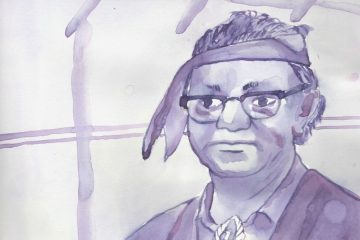Love Isn’t Just a Feeling: It’s Literally a Drug
by Kate Brunotts
With celebrity hookups breaking major headlines and the constant pressure to couple up and settle down, it’s hard to escape the crush culture. There’s no doubt about it; we are collectively obsessed with relationships and love, but our fascination may be more rooted in our biology than we’d like to believe.
The beginning stages of love and ending stages of breakups often result in brain patterns not far off from a person who has undergone a cocaine addiction. As it turns out, “love is a drug” is not just an expression, but simply a condition that comes with the territory.
The Highs of Kissing
Swapping spit feels great regardless of whether or not it’s with a long term partner and with good reason – Kissing automatically triggers an elixir of feel-good chemicals directly to the brain. Dopamine, serotonin, and oxytocin all flood the brain and leave you craving more. These chemicals target similar pleasure centers that are affected by drugs like heroin, making kissing highly addictive.
From a more utilitarian perspective, kissing helps one exchange biological information regarding DNA. There’s a particular cluster of genes called the major histocompatibility complex (or MHC for short), which can alert a potential partner of your immune system makeup. You are more likely to feel attracted to someone who has an MHC makeup much different than your own, which explains why you may feel someone is a better kisser than another. Kissing plays an important role in determining your best possible biological mate.
The Honeymoon Phase
Falling in love is extremely powerful and during the introductory period of your relationship, sometimes coined the “honeymoon phase”, you become chemically obsessed with your partner. With the constant influx of sex hormones estrogen and testosterone, every experience is a high and extremely exciting.
Not to mention, your body naturally boosts your adrenaline and this rush may make it hard for you to keep your hands to yourself. Initial feelings of passionate love are sought to boost nerve growth factor, which can boost levels of euphoria, although this growth tends to slow down or disappear completely after 12 to 24 months.
Your ability to make clear, focused decisions is also reduced during this period, furthering your obsessions and in a lot of ways, addiction to your new flame.
Pain Relief
Love has been shown to act as a powerful tool for reducing pain. Researchers at Stanford University found that love can provide very analogous care to painkillers depending on the neurological status of one’s relationship.
Simply thinking about your beloved during a period of intense, romantic love can target pleasure down the same neural pathways that are eased by pharmaceuticals.
Moreover, cuddling can reduce fear and anxiety levels, and lower one’s blood pressure. According to researchers at UNC-Chapel Hill, a 10-second hug with a loved one greatly reduces one’s stress, particularly during difficult situations. Curling up with your beau during a scary movie is no accident – Touch is objectively calming.
The Withdrawal of Breakups
With immense pleasure, there is immense pain. As great as falling in love feels breakups are as chemically impactful if not more.
In a study by PNAS, subjects shown a picture of their ex after going through an unwanted breakup experienced heightened levels of anxiety, and the pictures triggered the same part of the brain that typically deals with physical pain.
Your body raises levels of stress hormones, called cortisol, which can cause your muscles to swell giving you that awful constant “frog in your throat” feeling.
It’s not uncommon for you to get physically sick after a breakup as your chemical withdrawal puts your hormones in an immediate period of imbalance, leaving your body struggling to catch up. Your increased levels of stress may lead to a lack of appetite, difficulty sleeping, and an intense obsession over your former partner, which can only be compared to drug withdrawal intensity.
You may feel compelled to reach out to your ex or be somewhat delusional about your current relationship status, as getting over your addiction to your late partner can cloud your judgment. Just like it is difficult to go completely cold-turkey when quitting other drugs, you are likely to relapse and do anything to reestablish contact with your partner.
It’s not just adjusting to being single that’s difficult – The chemical addiction is still present. Weening off of that should be taken seriously, and with a good amount of care and empathy for yourself in mind.
Love is a powerful thing, in more ways than one.













